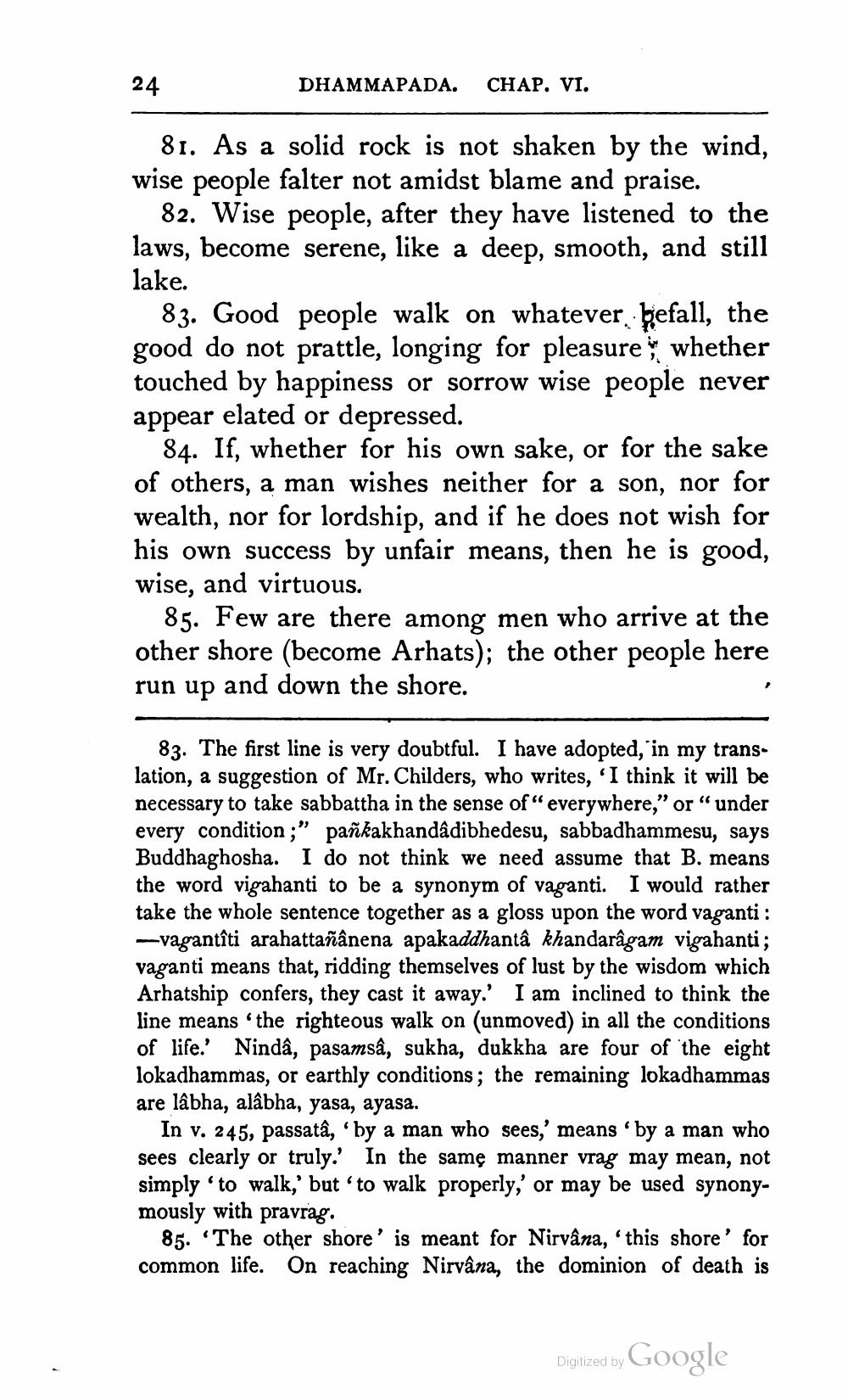________________
24
DHAMMAPADA. CHAP. VI.
81. As a solid rock is not shaken by the wind, wise people falter not amidst blame and praise.
82. Wise people, after they have listened to the laws, become serene, like a deep, smooth, and still
lake.
83. Good people walk on whatever befall, the good do not prattle, longing for pleasure whether touched by happiness or sorrow wise people never appear elated or depressed.
84. If, whether for his own sake, or for the sake of others, a man wishes neither for a son, nor for wealth, nor for lordship, and if he does not wish for his own success by unfair means, then he is good, wise, and virtuous.
85. Few are there among men who arrive at the other shore (become Arhats); the other people here run up and down the shore.
83. The first line is very doubtful. I have adopted, in my translation, a suggestion of Mr. Childers, who writes, 'I think it will be necessary to take sabbattha in the sense of “everywhere," or "under every condition;" pañkakhandâdibhedesu, sabbadhammesu, says Buddhaghosha. I do not think we need assume that B. means the word vigahanti to be a synonym of vaganti. I would rather take the whole sentence together as a gloss upon the word vaganti : -vagantîti arahattañânena apakaddhantâ khandarâgam vigahanti; vaganti means that, ridding themselves of lust by the wisdom which Arhatship confers, they cast it away.' I am inclined to think the line means the righteous walk on (unmoved) in all the conditions of life.' Nindâ, pasamsa, sukha, dukkha are four of the eight lokadhammas, or earthly conditions; the remaining lokadhammas are lâbha, alâbha, yasa, ayasa.
In v. 245, passatâ, 'by a man who sees,' means 'by a man who sees clearly or truly.' In the same manner vrag may mean, not simply to walk," but to walk properly,' or may be used synonymously with pravrag.
85. The other shore' is meant for Nirvana, this shore' for common life. On reaching Nirvana, the dominion of death is
Digitized by Google




